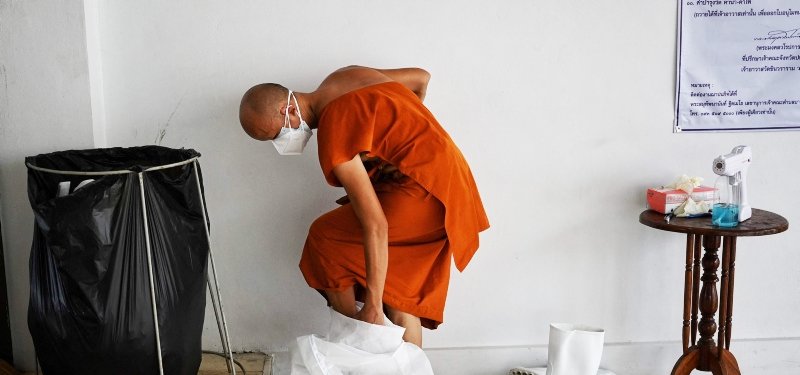
Thailand bans "false messages" amid criticism of handling of coronavirus
Prime Minister Prayuth Chan-ocha said this week that the spread of fake news had become a major problem causing confusion in society and undermining the government's ability to manage the pandemic.
- World
- Reuters
- Published Date: 10:23 | 30 July 2021
- Modified Date: 10:23 | 30 July 2021
Thailand banned on Friday the dissemination of "false messages" that affect security, drawing accusations from media groups that it is trying to crack down on criticism of its handling of the coronavirus pandemic.
Prime Minister Prayuth Chan-ocha said this week that the spread of fake news had become a major problem causing confusion in society and undermining the government's ability to manage the pandemic.
An emergency decree that took effect on Friday prohibits the dissemination of false messages and distorted news that cause panic, misunderstanding or confusion "affecting state security, abusing the rights of others, and order or good morality of the people".
The decree empowers the state regulator, the National Broadcasting and Telecommunications Commission (NBTC), to order service providers to block internet access to individual IP addresses if it believes they are disseminating false news and to inform the police to take legal action.
The decree comes after the government has faced public criticism over its handling of the pandemic.
For most of last year Thailand managed to keep the virus at bay but a recent surge of infections, driven by the Delta variant of the virus, has been the deadliest yet.
A sluggish vaccine roll-out has led to huge crowds queuing up day after day in some places for COVID tests and inoculations.
The government already has sweeping powers to enforce measures to tackle the coronavirus and rules for control of the internet. Authorities have been taking legal action against some people, including some celebrities and social media influencers, who have criticised the pandemic response.
These include 19-year-old rapper, Danupa "Milli" Khanatheerakul, who was fined 2,000 baht ($60) on a charge of "public insult" last week after accusing the government on social media of mishandling the COVID-19 crisis.
Six media associations said in a joint statement the government's legal actions showed "an intent to crack down on the freedom of expression enjoyed by the media and the public".
The associations are planning deliver a letter protesting against the government's new order on Friday.
The government has said that legal action against "false messages" was not aimed at silencing the media.
- Mexico records 19,346 more COVID-19 cases, 459 deaths
- Florida coronavirus cases jump 50% as surge continues
- Brazil reports 40,904 new coronavirus cases, 963 deaths
- Joe Biden says more sanctions coming against Cuba in response to crackdown on protesters
- US extends condolences to Turkey amid 'devastating' forest fires

